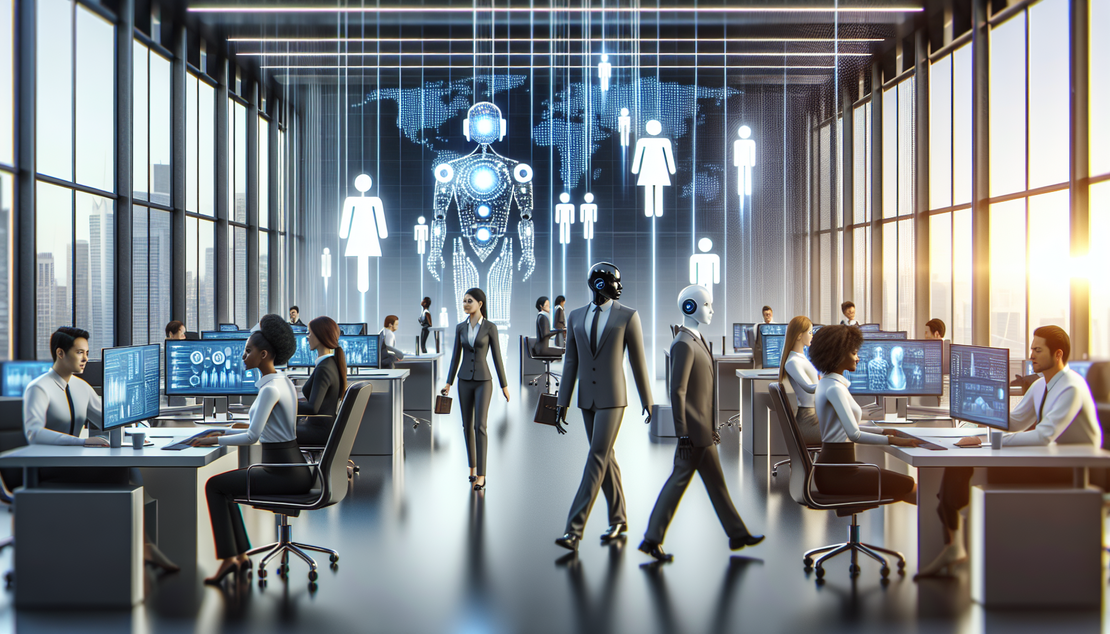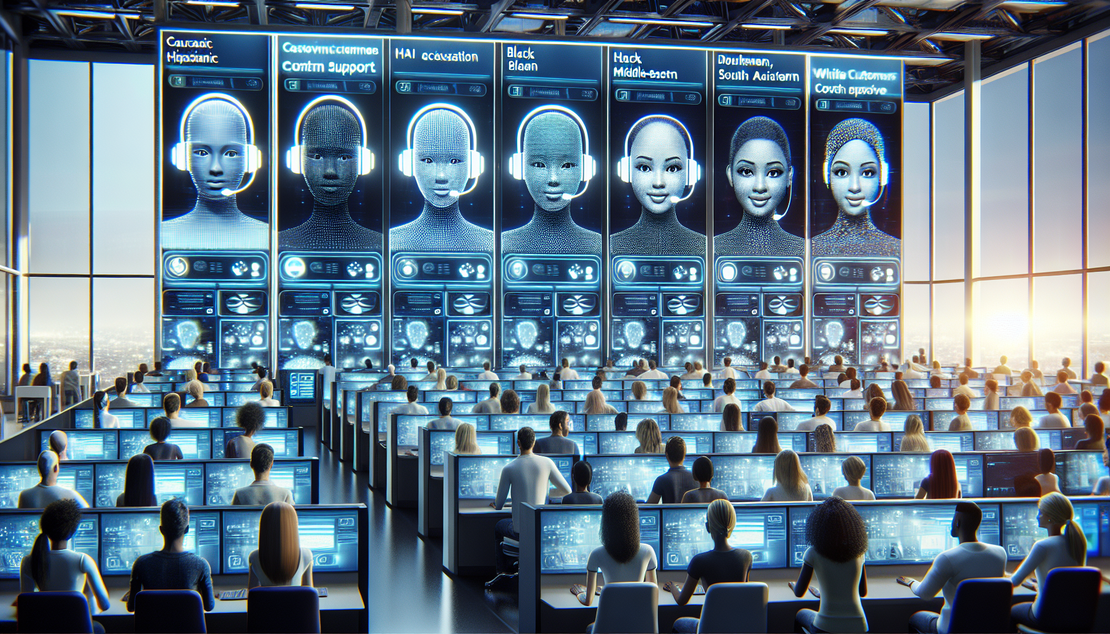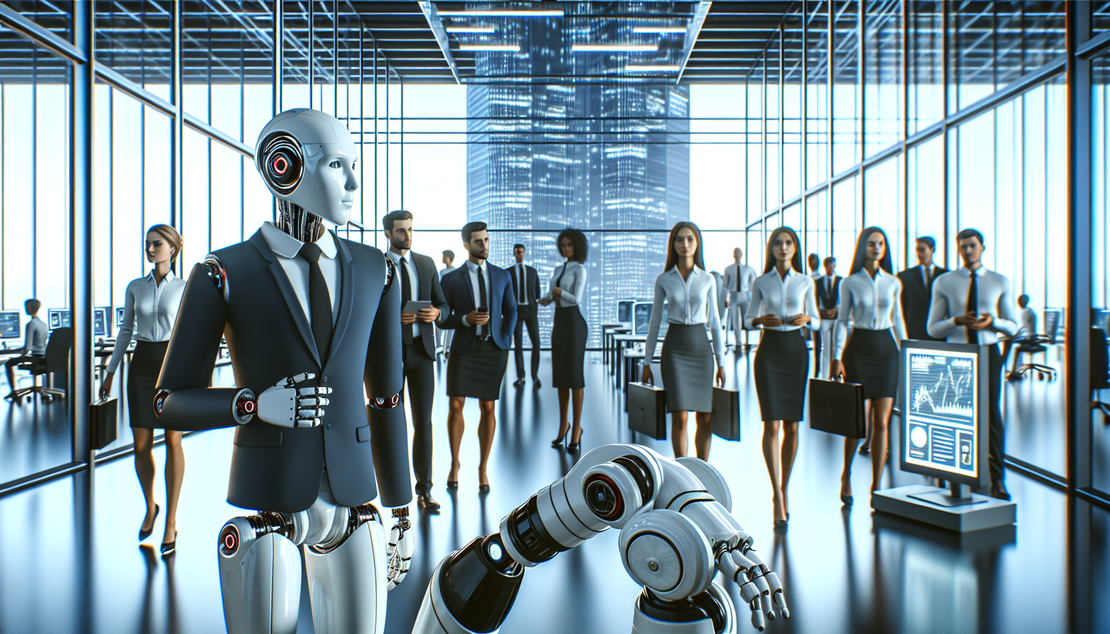
The Benefits of Implementing AI in Human Resources Management
- Rajdeep Barad
- Implementing ai in human resources management , Ai trends in hr , Hr automation , Predictive analytics
- February 8, 2025
The Benefits of Implementing AI in Human Resources Management
Introduction to AI in Human Resources Management
Artificial Intelligence (AI) is revolutionizing the way human resources functions operate by introducing automation and data-driven decision-making processes. In the HR landscape, AI refers to the use of technologies such as machine learning and natural language processing to streamline HR tasks, enhance efficiencies, and improve the overall employee experience.
As AI continues to reshape HR practices, it offers immense benefits to organizations in terms of recruitment, employee engagement, operational efficiency, and data analytics. Staying abreast of the latest AI trends in HR is crucial for businesses aiming to stay competitive in attracting and retaining talent.
Pro Tip: Stay connected with industry forums, webinars, and AI conferences to continually update your knowledge of AI trends in HR and explore new opportunities for implementation.
Enhanced Recruitment and Talent Acquisition
AI in HR plays a pivotal role in revolutionizing the recruitment and talent acquisition processes:
- Utilizing AI for resume screening: AI-powered tools analyze resumes swiftly, matching candidate qualifications with job requirements efficiently. - Implementing AI for unbiased candidate selection: AI algorithms eliminate biases in the recruitment process, ensuring fair selection based on skills and qualifications. - Streamlining interview scheduling with AI-powered tools: AI automates interview scheduling, saving time for both HR professionals and candidates. - Improving candidate experience through chatbots: Chatbots provide instant responses to candidates’ queries, enhancing communication and engagement throughout the recruitment process.
Pro Tip: Implement AI tools that can assess candidates beyond their resumes, such as by analyzing their social media presence or conducting skills assessments, to gain a more comprehensive view of their potential fit within the organization.
Improved Employee Engagement and Retention
AI can significantly impact employee engagement and retention strategies:
- Personalized recommendations for employee training and development: AI analyzes employee performance and recommends personalized training programs to enhance skills and career growth. - Implementing AI for identifying factors leading to employee turnover: AI tools can identify patterns and factors contributing to employee turnover, allowing HR to take proactive retention measures. - Using AI to create customized retention strategies: AI aids in developing individualized retention strategies based on employee preferences and performance data. - Enhancing employee satisfaction with AI-powered feedback systems: AI-powered feedback tools collect and analyze employee feedback, promoting a culture of continuous improvement and engagement.
Pro Tip: Leverage AI to conduct sentiment analysis on employee feedback to understand underlying concerns, preferences, and areas for improvement, thereby creating tailored solutions that boost employee satisfaction and retention.
Efficient HR Operations with Automation
Automation through AI is instrumental in optimizing HR operations:
- Automating repetitive HR tasks with AI: AI automates routine tasks like timesheet management, leave approvals, and onboarding processes, freeing up HR professionals to focus on strategic initiatives. - Implementing chatbots for answering employee queries: Chatbots provide instant responses to common HR queries, enhancing employee experience and reducing response time. - Using AI for payroll processing and benefits administration: AI streamlines payroll processing, benefits management, and compliance tasks, minimizing errors and ensuring accuracy. - Streamlining performance management through AI tools: AI tools assist in performance evaluation, feedback collection, and goal setting, enhancing performance management processes.
Pro Tip: Integrate AI-powered HR software that can generate predictive analytics on workforce trends, helping HR departments to make informed decisions regarding resource allocation, training needs, and future recruitment strategies.
Data-Driven Decision Making in HR
Data-driven decision-making is crucial for HR functions, and AI facilitates this process:
- Leveraging AI for predictive analytics in HR: AI predicts future trends in workforce planning, attrition rates, and skill gaps, aiding HR in proactive decision-making. - Utilizing AI to analyze employee feedback and sentiment: AI tools analyze employee feedback, performance reviews, and sentiments to gauge overall employee satisfaction and engagement levels. - Implementing AI for workforce planning and forecasting: AI algorithms assist in forecasting staffing needs, succession planning, and talent pipeline development. - Making evidence-based decisions with AI-generated insights: AI generates insights from vast HR data repositories, enabling informed decisions on talent acquisition, performance management, and training initiatives.
Pro Tip: Implement AI solutions that provide real-time analytics on employee engagement metrics, enabling HR professionals to intervene promptly in areas where employee satisfaction may be at risk and take proactive measures to enhance workplace morale and productivity.
Ensuring Data Security and Ethical AI Use
As organizations embrace AI in HR, ensuring data security and ethical AI practices is paramount:
- Importance of data privacy in AI-driven HR processes: Safeguarding employee data and ensuring compliance with data protection regulations is critical for maintaining trust. - Implementing ethical AI guidelines in HR practices: Establishing ethical guidelines on AI use, data handling, and transparency in decision-making promotes responsible AI adoption. - Ensuring transparency in AI decision-making: Organizations should strive to explain AI-driven decisions in a clear and understandable manner to maintain trust and accountability. - Addressing bias and discrimination concerns in AI algorithms: Regularly auditing AI algorithms, monitoring for biases, and taking corrective actions help mitigate discriminatory outcomes.
Pro Tip: Regularly conduct AI audits to assess potential biases in algorithms, evaluate data integrity, and ensure that AI systems adhere to ethical standards and promote fairness in decision-making processes within HR operations.
Ready to transform your digital vision?
Get in touch with us to explore how our cutting-edge solutions can elevate your business to new heights. Contact us today!
Get in Touch


